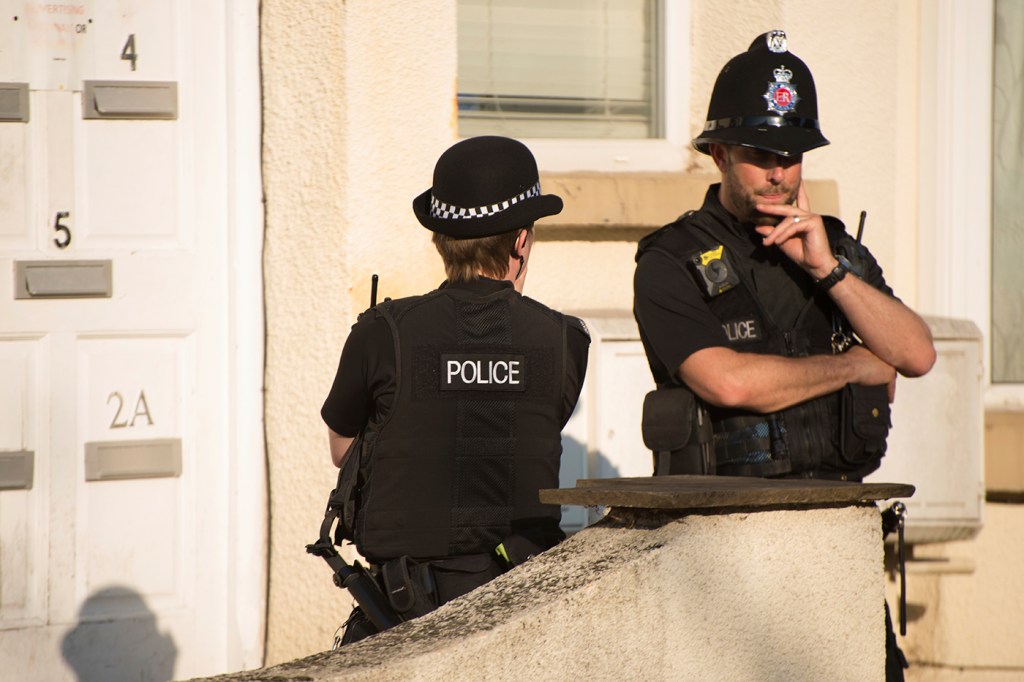What the UK’s intel blackout means for intelligence-sharing networks

On Thursday, British officials announced that police investigating the Manchester Arena bombing had stopped sharing information with the U.S., frustrated by leaks to the media.
The stunning announcement came after several developments published by U.S. news organizations: The name of the bomber, Salman Abedi, was published just hours after the attack, and on Wednesday, The New York Times published photos showing debris from the attack—photos which came from preliminary information gathered by British authorities.
Peter Neffenger, who holds an appointment in Northeastern’s Global Resilience Institute and is the Transportation Security Administration’s former administrator and a vice admiral in the U.S. Coast Guard, is no stranger to intel-sharing networks.
“The U.K. and U.S. intel-sharing agreement is one of the strongest, one of the most robust, and one of the longest-standing in the world,” he said. “We’ll survive this.”
Neffenger added: “Intelligence sharing is critically important in this world.”
As an intelligence and security expert, what’s your take on the announcement Thursday morning that police investigating the Manchester bombing would no longer share details with their American counterparts?
Clearly it looks as though the United Kingdom feels as if the U.S. made public information that they didn’t want to be made public, and that’s a real challenge from a tactical sense. There are certainly people involved with the Manchester investigation who aren’t happy, but I don’t think it will damage the larger intel-sharing network the U.S. has with the U.K. What we saw on Thursday was a very important partner of ours saying, ‘We think you did something you shouldn’t have done. Don’t do it again.’
More broadly, there’s always a risk that, if you share information it might come out in ways you didn’t intend. The problem with this investigation is that the leak isn’t necessarily a problem for the British, but for the U.S., if we were looking for similar networks or clues.
From my experience working in and around the intelligence community, though, the U.K. and U.S. intel-sharing agreement is one of the strongest, one of the most robust, and one of the longest-standing in the world. We’ll survive this.
How does the leak impact the efficacy of these sharing networks?
Well, first, let me say that it’s always a challenge—when you’ve been privy to highly-classified information—to remember what the nature of that classification is.
If you’re around classified information a lot, then you spend a lot of time in secure spaces talking freely with other people who are privy to the same information. Once you leave that room, you have to work very carefully not to talk about that information, and to remember that you might not be in a secure space anymore. That’s why most of us just don’t talk about these things outside that room.
Certainly someone at a senior level, like the president, can make a decision to declassify something, but the general rule is that if that information came from a third party, you want to go back to that source before information is shared.
How important is intelligence sharing to global and national safety?
Intelligence sharing is critically important in this world, and it’s one of the things that got really good after 9/11.
In my experience, it’s been key to doing my jobs effectively. For example, at the TSA: Transportation is a global system, and one of the most critical sectors to the health of any economy. People who want to harm our economy understand that, and that’s why so often you see attacks on airplanes and trains—these transportation hubs.
You can’t pay attention to what’s happening throughout the entire system if you’re doing it all by yourself, though. I don’t know what the threats are to the U.S. if I don’t know anything about what the threats are at the origin. Additionally, you want to make sure the entire system is secure. If there’s a vulnerability at any point—at any country—that’s an entryway for someone looking to cause harm to the entire system.





